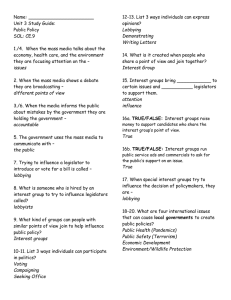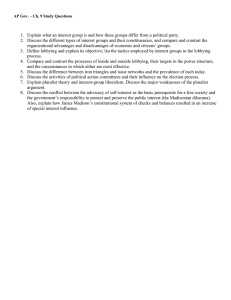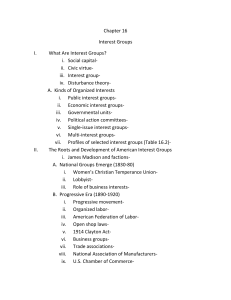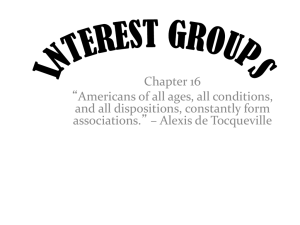“GRASSROOTS” LOBBYING: A PLAIN ENGLISH GUIDE
advertisement
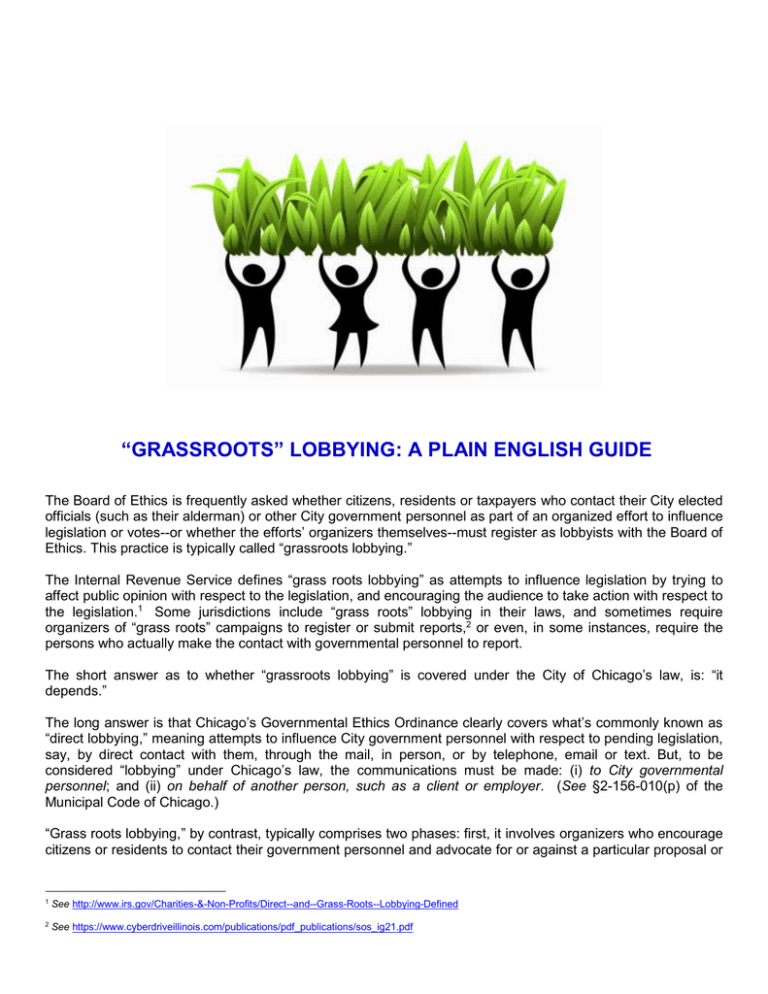
“GRASSROOTS” LOBBYING: A PLAIN ENGLISH GUIDE The Board of Ethics is frequently asked whether citizens, residents or taxpayers who contact their City elected officials (such as their alderman) or other City government personnel as part of an organized effort to influence legislation or votes--or whether the efforts’ organizers themselves--must register as lobbyists with the Board of Ethics. This practice is typically called “grassroots lobbying.” The Internal Revenue Service defines “grass roots lobbying” as attempts to influence legislation by trying to affect public opinion with respect to the legislation, and encouraging the audience to take action with respect to the legislation.1 Some jurisdictions include “grass roots” lobbying in their laws, and sometimes require organizers of “grass roots” campaigns to register or submit reports,2 or even, in some instances, require the persons who actually make the contact with governmental personnel to report. The short answer as to whether “grassroots lobbying” is covered under the City of Chicago’s law, is: “it depends.” The long answer is that Chicago’s Governmental Ethics Ordinance clearly covers what’s commonly known as “direct lobbying,” meaning attempts to influence City government personnel with respect to pending legislation, say, by direct contact with them, through the mail, in person, or by telephone, email or text. But, to be considered “lobbying” under Chicago’s law, the communications must be made: (i) to City governmental personnel; and (ii) on behalf of another person, such as a client or employer. (See §2-156-010(p) of the Municipal Code of Chicago.) “Grass roots lobbying,” by contrast, typically comprises two phases: first, it involves organizers who encourage citizens or residents to contact their government personnel and advocate for or against a particular proposal or 1 See http://www.irs.gov/Charities-&-Non-Profits/Direct--and--Grass-Roots--Lobbying-Defined 2 See https://www.cyberdriveillinois.com/publications/pdf_publications/sos_ig21.pdf policy; second, it involves citizens or residents actually making such communications, in their capacity as individual citizens or residents, directly to government personnel in response to this encouragement. Normally, these organizers do not themselves contact government personnel. Under City law, they are not engaged in lobbying as defined in City law unless they do. So, personally dropping off petitions to an elected official or City employee could be considered lobbying. Similarly, citizens or residents who respond to these encouragements and contact their alderman, the Mayor, etc., or who sign petitions, are not lobbying if they make these contacts on their own behalf as citizens, taxpayers, or residents. However, if they meet with, call, email, or text City government personnel and represent themselves as communicating or acting, say, “on behalf of the Coalition for a Stronger Chicago,” then they might be lobbying, and might be required to register (the answer here will depend on whether this “Coalition” is organized as a non-profit and has only non-profit members—if the answers to both are ”yes,” then a lobbying registration exemption should apply). These questions can be complex, and fact-specific, and the Board can assess monetary penalties for unregistered lobbying. Please contact the Board of Ethics for guidance about these regulations. Please note that this publication is not intended to constitute binding legal advice. If you have a question about a specific situation, please contact the Board of Ethics for confidential, binding legal advice, or guidance. BOARD OF ETHICS 740 NORTH SEDGWICK, SUITE 500 CHICAGO, IL 60654 312.744.9660 www.cityofchicago.org/Ethics Rahm Emanuel, Mayor Stephen Beard, Chair Steve Berlin, Executive Director sberlin@cityofchicago.org Twitter: @EthicsSteve 9/15


